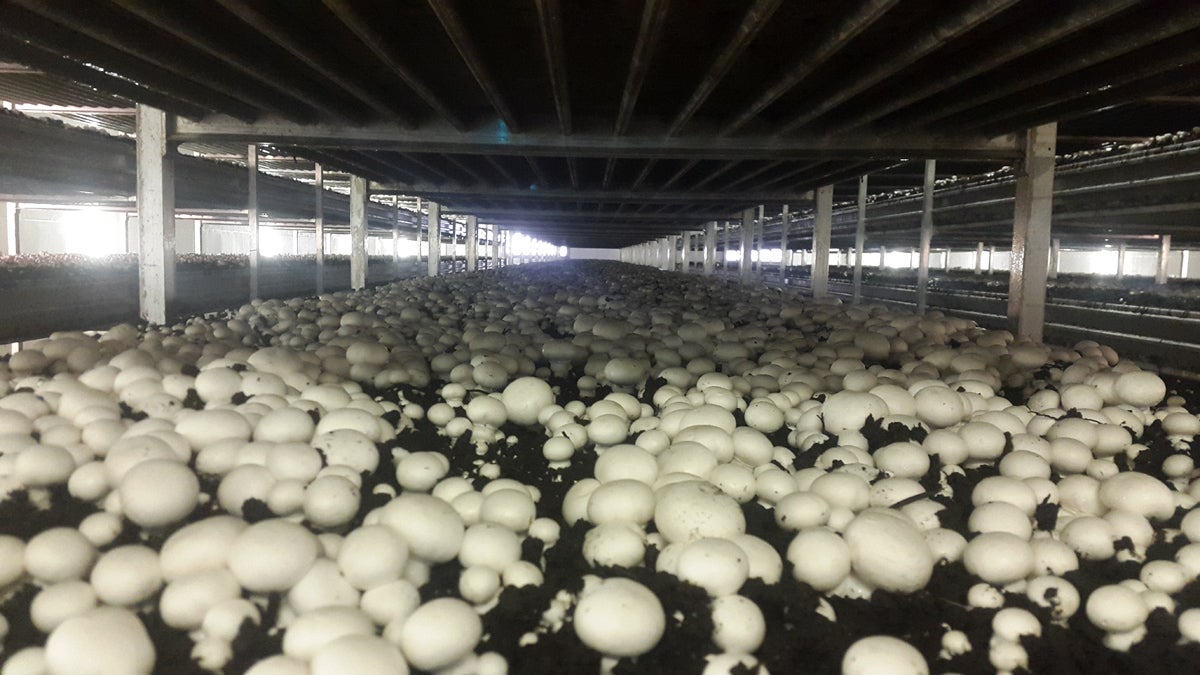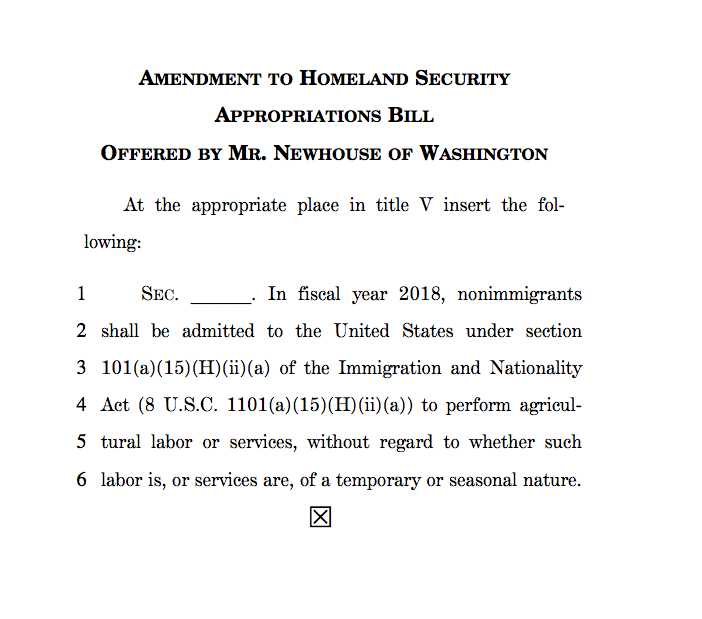House bills have Chesco mushroom farmers hopeful a labor fix is around the corner
Listen
A bed of mushrooms at Pietro Industries in southern Chester County. (Laura Benshoff/WHYY)
More than half of all mushrooms grown in the US come from Pennsylvania, primarily southern Chester County.
But finding enough people to pick them has been difficult in recent months, said Meghan Klotzbach, regulatory manager with Mother Earth Organic Mushrooms in West Grove, Pennsylvania.
“We definitely have a labor shortage in the mushroom industry, and at our own farm,” she said. “We are not able to harvest all of the mushrooms that we are growing.”
Due to the year-round nature of growing mushrooms indoors, mushroom growers are barred from using a federal guest-worker program called H-2A, to recruit authorized workers when U.S. residents do not take the jobs.
With several bills in or headed to Congress, that may now change – over the objections of immigrants’ rights advocates.
Many proposals, one aim
Last week, U.S. Congressman Dan Newhouse, from Washington state, stuck a rider (additional provision) on a Department of Homeland Security spending bill.
While only one sentence long, the addition would be a boon to year-round agricultural industries such as mushroom and dairy farmers.

“H-2A workers could be approved to perform agricultural work, without regard as to whether that work is of a temporary, or seasonal nature,” said Bruce Goldstein, president of immigrant advocacy group Farmworker Justice, which opposes the rider.
Criticism of the expansion is two-fold. Some say it could poach year-round jobs from American residents, while others point out the potential to abuse foreign workers, who are tied to a single employer, and the potential to erode existing regulations that set wages and mandate humane treatment of these workers.
“The [H-2A] program is premised on the idea that seasonal jobs don’t yield enough annual income to attract many U.S. workers,” so expanding it contradicts the reason for creating the program in the first place, said Goldstein. The H-2A program has no cap on the number of visas awarded each year.
Meanwhile, the mushroom industry is cautiously optimistic. Along with the dairy industry, mushroom farmers have lobbied for access to the H-2A program nearly since its inception, in 1986. “This is so early in the process, we’re just watching it like everyone else,” said Daniel Rohn, project manager with the American Mushroom Institute, a trade association.
“We’re certainly in need of agriculture labor reform, and this is a step in that direction,” he said.
While that spending bill is still winding its way through the House, several other proposals to expand or change how the U.S. recruits and treats agricultural workers from other countries are under discussion.
Rep. Bob Goodlatte, (R- Virginia), chairman of the powerful House judiciary committee, announced plans to introduce his own legislation to overhaul the program and held a hearing on the topic July 19.
Sen. Ron Johnson (R-Wisconsin) sponsored a bill to allow states to issue their own guest-worker visas, awarding up to 5,000 three-year visas annually.
Five Democratic senators proposed the Agricultural Worker Program Act in May, which would provide a path to work authorization, and eventually legal residency, for unauthorized immigrants already working on U.S. farms.
About half of all agricultural workers in the U.S. are unauthorized immigrants, according to surveys by the Department of Labor. A tightening labor market and fears of increased immigration enforcement may be exacerbating an existing shortage of farm labor, spurring some in agriculture to raise wages.
With several bills to expand temporary visas in the mix, Pennsylvania mushroom growers like Meghan Klotzbach say they’re hopeful relief is on the way. Klotzbach said her company is interested in seeing a multi-faceted reform, which would combine temporary visas with a way to authorize existing undocumented workers.
“There’s some really positive things going on out there and people are really pushing to get these things through,” she said.
Growers say an unstable labor pool is already eating into their bottomline, and point to numbers from the USDA showing that productivity at Chester County mushroom farms declined by two percent last year.
WHYY is your source for fact-based, in-depth journalism and information. As a nonprofit organization, we rely on financial support from readers like you. Please give today.

